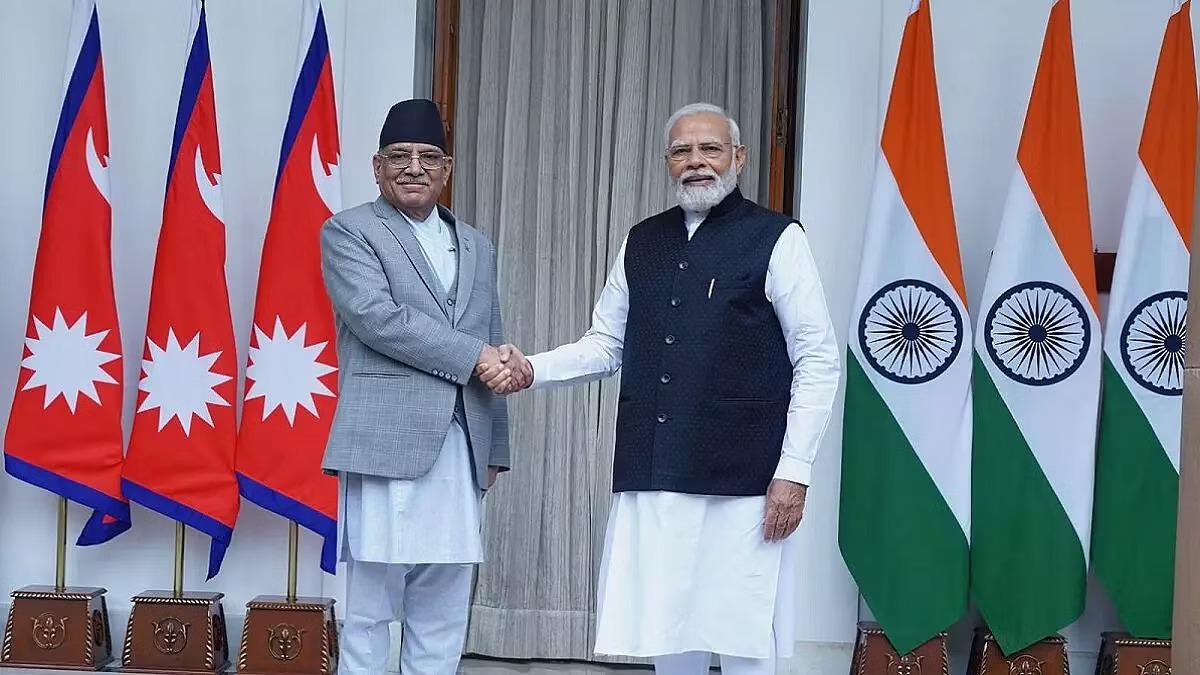Deepening Nepal-India Relations: Exploring Opportunities through the Look South Policy

The Look South policy has led to a deepening relationship between Nepal and India. This relationship opens up opportunities for Nepal to connect with countries like Bangladesh, Burma, Thailand, Vietnam, and Singapore through northeastern regions of India. Nine years ago, a joint press release between Indian Prime Minister Narendra Modi and Prime Minister Sushil Koirala covered various topics to strengthen Nepal-India relations, including the constitution, border issues, and extradition treaties. Modi also donated sandalwood to Pashupatinath temple and offered scholarships to Nepali students.
Over the past nine years, India has had one prime minister, Narendra Modi, while Nepal has had seven prime ministers. This frequent turnover in Nepal's leadership has become institutionalized, with multiple individuals taking turns as prime minister. Pushpa Kamal Dahal, who recently concluded a difficult tour as prime minister, faced challenges due to his party's lack of majority in Parliament and the need to save the government. Rumors of seeking blessings to become the prime minister have also affected his government.
Dahal's past involvement in the Maoist movement and the violence associated with it have negatively affected his image in India. He is seen as a pro-China figure with a Maoist ideology, which creates obstacles with political parties and leaders in India who are opposed to communists. Despite this, Nepal's previous government, led by Dahal, had a stronger alignment with China in terms of international relations.
During the meeting between Prime Minister Dahal and Prime Minister Modi, several important aspects regarding Nepal-India relations emerged. One key aspect is the resumption of India's Neighborhood First policy, focusing on connectivity, commerce, and community exchange. The two countries discussed various projects and agreements related to transportation, trade, and tourism, including railway lines, bridges, integrated check posts, and petroleum pipelines.
India also expressed its commitment to importing 10,000 MW of power from Nepal in the next ten years, highlighting its willingness to consume power generated in Nepal. This signifies a shift in India's role from solely being a power generator to becoming a power transmission hub to neighboring countries. Nepal, in turn, is changing its stance on power export and allowing Indian companies to participate in hydropower projects, leading to a significant increase in bilateral electricity trade.
Another important aspect of the meeting was Nepal's "Look South" foreign policy. By expanding this policy, Nepal aims to deepen its relationship with India and gain access to international markets through ports in Bangladesh. It also envisions connecting with countries like Burma, Thailand, Vietnam, and Singapore through northeastern regions of India. The completion of the trilateral highway connecting Burma and Thailand will further facilitate Nepal's connectivity and trade with Southeast Asian countries.
Under the Look South Policy, Nepal aims to play an active role in the development of eastern Nepal, Bhotang, Bangladesh, and Northeast India through the Bangladesh-Bhotang-India-Nepal (BBIN) development quadrangle. This region has the potential to become the most developed region in South Asia, and international organizations like the World Bank and Japan's JICA are already involved in its development.
Overall, the meeting between Dahal and Modi showcased the potential for enhanced cooperation between Nepal and India in various sectors, including transportation, trade, energy, and regional connectivity.
The implementation of the projects and agreements discussed in the meeting between Modi and Dahal will be a significant challenge for Prime Minister Dahal. Ensuring effective implementation will require strong leadership, confidence, and administrative capacity. It is important for Dahal to establish a multi-ministerial team to investigate the progress of previously announced projects and learn from their successes and failures. Creating such organizations and groups at national and provincial levels will be crucial.
Dahal should also consider the relationship with China and its guidelines for the country while proceeding with agreements and projects with India. Maintaining India's trust while exploring trade and commerce opportunities with China in the national interest should be carefully managed. Nepal needs to navigate the tensions between India and China, as well as the complex dynamics of the Sino-US competition. Nepal must maintain a realistic balance between its relations with China and its proximity to India. Cooperation between institutions like India's Sushma Swaraj Institute of Foreign Service and a similar institute in Nepal can help address these issues.
If Dahal dedicates himself to developing a comprehensive and long-term foreign policy for Nepal, he can complete the unfinished tasks that previous prime ministers have not accomplished. The support of countries like the US, UK, and India, as well as the involvement of educated Nepali citizens with international experience, will be valuable in this endeavor. It is important for different sections of society, including castes, religions, communities, and political parties, to unite and move forward together. With unity and clarity, Nepal can find a clear and definitive direction, leading it out of the current state of confusion.
- Political Leaders
- Art & Crafts
- Dance & Music
- Sanatan Dharma
- Education & Training
- Food & Drinks
- Gaming
- Health & Fitness
- Home & Gardening
- Literature & Culture
- Love
- Medicine & Ayurveda
- Motors & Vehicles
- Movies & Cinema
- Parenting
- Politics
- Science & Technology
- Shopping
- Social Media
- Spirituality
- Sports
- War & History
- Yoga & Meditation
- Travel & Tourism
- Natural Disaster
- Business & Startups
- DIY & Home Decor
- Finance
- Personal
- News
- Pet Lovers
- Wild Life & Nature
- Podcast & Audio Books
- Poetry
- Law & Order
- Moral Stories
- Jokes & Humour
- Other

